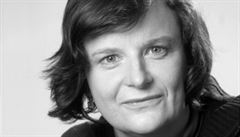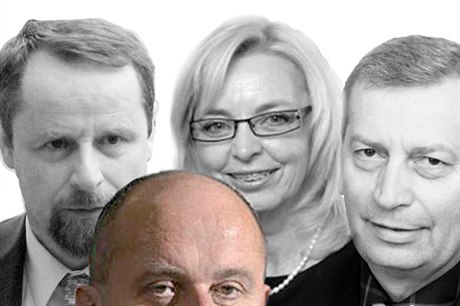A Prague court this week upheld a suspended prison sentence on the Supreme Audit Office (NKÚ) head František Dohnal for refusing parliamentarians access to the institution’s own books. Politicians — despite their public denials — long ago began working behind the scenes to ensure their favorites get on to the short list of prospective candidates to replace him, sources in government circles tell Czech Position.
According to those sources, the likely top three candidates are:
- Miroslav Vaněk, director from the Office of the Government Representation in Property Affairs (ÚZSVM), created in 2002 to improve legal services and ensure efficient protection and economical administration of state property;
- MP Zdeňka Horníková, a member of the Civic Democrats (ODS) of which the current prime minister is chairman
- and Martin Říman, the chief advisor to Prime Minister Petr Nečas and a former ODS trade and industry minister.
Although it is upon the lower house of Parliament (Chamber of Deputies) to nominate the next NKÚ chairman, it is President Václav Klaus who has the power to appoint them — or dismiss them, which he declined to do in Dohnal’s case despite evidence of a litany of infractions over the past three years (from charges of abuse of power for thwarting the audit of his office to breach of trust for making use of luxury apartments and cars at taxpayers’ expense).
Czech Position first reported early last year that ÚZSVM’s Miroslav Vaněk had been tipped to head the NKÚ. He confirmed having heard the same rumors, but said he had received no official offer — adding, however, that such an offer could hardly be refused.
Meanwhile, Finance Minister Miroslav Kalousek (TOP 09) and Nečas’ chief advisor are said to have been pushing for Dohnal’s ouster for more than a year; now it appears Říman himself is a prime candidate to head the NKÚ. As for MP Zdeňka Horníková (ODS), she confirmed that “unofficially, a few people have consulted me on this opportunity.”
There are also some dark horses in the contest.
Among them is Martin Roman, who resigned as CEO of the state-controlled power company ČEZ this autumn, reportedly due to the impending release of damaging evidence of allegedly suspect deals arranged to benefit his previous employer, Škoda Holding (and by extension himself and former colleagues). Roman remains on at ČEZ as head of its supervisory board, which pays some Kč 110,000 a month; the NKÚ chairmanship pays a hefty Kč 160,000, with the term in office set at nine years (few public figures enjoy such job security).
Then there’s Miloslav Kala, the current NKÚ vice chairman, who would be a natural candidate to replace his outgoing boss, except that he is a former member of the Social Democrats (ČSSD), the main center-left opposition party (who enjoy a majority in the upper house of Parliament, the Senate, but not in the lower house, where the nominations are agreed upon.
Similarly, Vaněk’s potential candidacy could be weakened by virtue of being considered a person close to Kalousek, a powerful minister but unpopular figure; František Dohnal, too, was said to have been in the TOP 09 deputy chairman’s camp. The rank and file of both the ODS and the ČSSD might be reluctant to back one of Kalousek’s horses a second time.
The NKÚ, as the “supreme” auditing authority — a “unique, independent constitutional entity to supervise the management of the state property and the state budget” —is meant to be absolutely apolitical. “The NKÚ performs its functions independently, being dependent neither on the legislative power (parliament) nor on the executive power (government). To the maximum degree, political influences on its work are eliminated,” it says on its website.
However, by all accounts, Dohnal was installed to the post in 2005 as a form of compensation for his own political party, the Christian Democrats (KDU–ČSL). That year, the party had lost control of the Office for the Protection of Competition (ÚOHS) when their man there, Josef Bednář, was replaced in the post by ČSSD’s man Martin Pecina, who later became the interior minister. Kalousek was the KDU–ČSL chairman before he left to form TOP 09 with an eye to the May 2010 parliamentary elections.
Founded in 1993, the NKÚ has an annual budget of over Kč 500 million, yet the office has itself not once been subject to an independent audit. It was the Budgetary Control Committee chairman, Vojtěch Filip (Communist Party, KSČM), who had filed the criminal complaint against Dohnal for his recurring refusal to cooperate in an audit of the NKÚ’s financial management by the committee.
Objectivity above all
To ensure the highest possible degree of objectivity in considering audited matters and in decision-making, the collective principle has been adopted for the work of the office. For this reason, decisions on the planning and results of the auditing activity of NKÚ are taken by its collective bodies: according to the importance and nature of audits, either the whole 17-member Board or three-to-five-member Senates.
The Board consists of the President, the Vice President and 15 members of the Office. The members of the Office are elected by the Chamber of Deputies of the Parliament of the Czech Republic; their term of office lasts continuously until they attain the age of 65 years, and their status is comparable to the status of the members of parliament.
According to Czech law, the NKÚ president must resign from office if a criminal judgment against him or her comes into force, i.e. when an appeal is not made or appeals to courts of higher instance are rejected. Prime Minister Petr Nečas (Civic Democrats, ODS) reacted swiftly — and unexpectedly sharply — to the ruling handed down against Dohnal in August by a Prague 7 District Court judge (and upheld this week).
— All previous articles about the Supreme Audit Office are archived here





